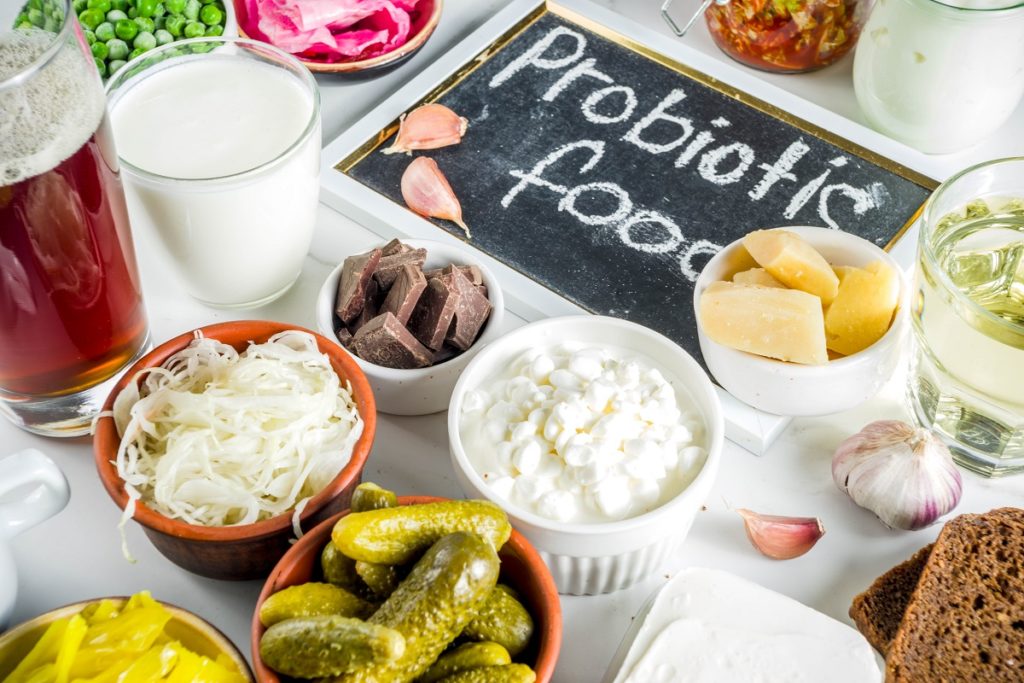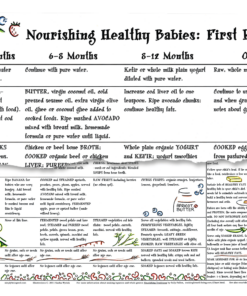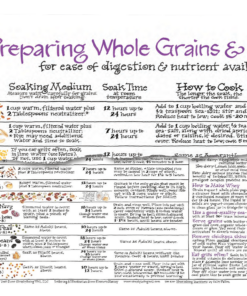What is fermentation, and why is it so important? Fermentation is, first and foremost, a traditional way of preserving food that has been around for millennia. The earliest evidence of fermentation dates to about 6,000 BC in the Fertile Crescent region of the Middle East. It is possibly the oldest method of preserving food prior to refrigeration.
I can imagine the day one of our ancestors threw salt on some vegetables and later noticed how this prevented them from rotting. Fermentation was born! Salt allowed our forebears to keep precious vegetables through the winter and during long sea voyages.
Little did they know that a bit of salt would yield so many health benefits! Yes, fermentation is not only a way to preserve foods, but it is also a “value-added” process. You get extra value from fermenting than you would from not fermenting. You take already nutritious foods, and not only do you make them easier to digest, but you also increase the amount of nutrients in them.
Benefits of Lacto-Fermentation
By adding salt and limiting oxygen, the process of lacto-fermentation preserves food by creating conditions that allow for the growth of lactobacilli while preventing the growth of pathogens. (You can also use “starters” that add lactobacilli to the food if you wish, though it is not necessary to do so.) The lactic acid produced by these lactic acid-producing bacteria, aka “lactobacilli,” preserves the food.
Benefits of Consuming Beneficial Bacteria
The merit of adding beneficial bacteria to our diet has become ever more apparent over the past decade or so, and many of us now realize that it is vital to consume fermented foods daily. Scientific studies are confirming what the diets of traditional peoples all over the world have long testified: eating fermented foods leads to greater health and longevity. (For an in-depth study of the benefits of traditional diets, read Dr. Weston A. Price’s classic book Nutrition and Physical Degeneration.)
We know now that a robust and varied microbiome in the digestive tract can increase immunity and improve digestion. It can also contribute to improved brain function by cleaning up toxins produced by pathogens and help correct dysbiosis in the gut. (See Gut and Psychology Syndrome by Dr. Natasha Campbell-McBride for a detailed study and references.)
Contributions of the Lactobacilli
During fermentation, lactobacilli break down the carbohydrates in the food that is being fermented. In other words, they predigest the food for you. The byproducts of this predigestion process increase the food’s nutrient profile, making it more nutrient rich. Here are some of the things that lactobacilli contribute:
- Lactic acid to feed the intestinal flora and create the correct pH levels in the gut
- Additional enzymes, which help with digestion.
- Increased vitamins, including vitamin C and some B vitamins.
- Natural antibiotics.
- Natural anticarcinogens.
As if that were not enough, consuming fermented foods can help break down fats in the liver. Eating lacto-ferments prior to a meal can help increase hydrochloric acid (HCl) in the stomach, which is necessary for the efficient digestion of protein. (Some of the best ferments to eat before a meal are those made from cabbage, such as sauerkraut, kimchee, or cortido, though other ferments are also beneficial.)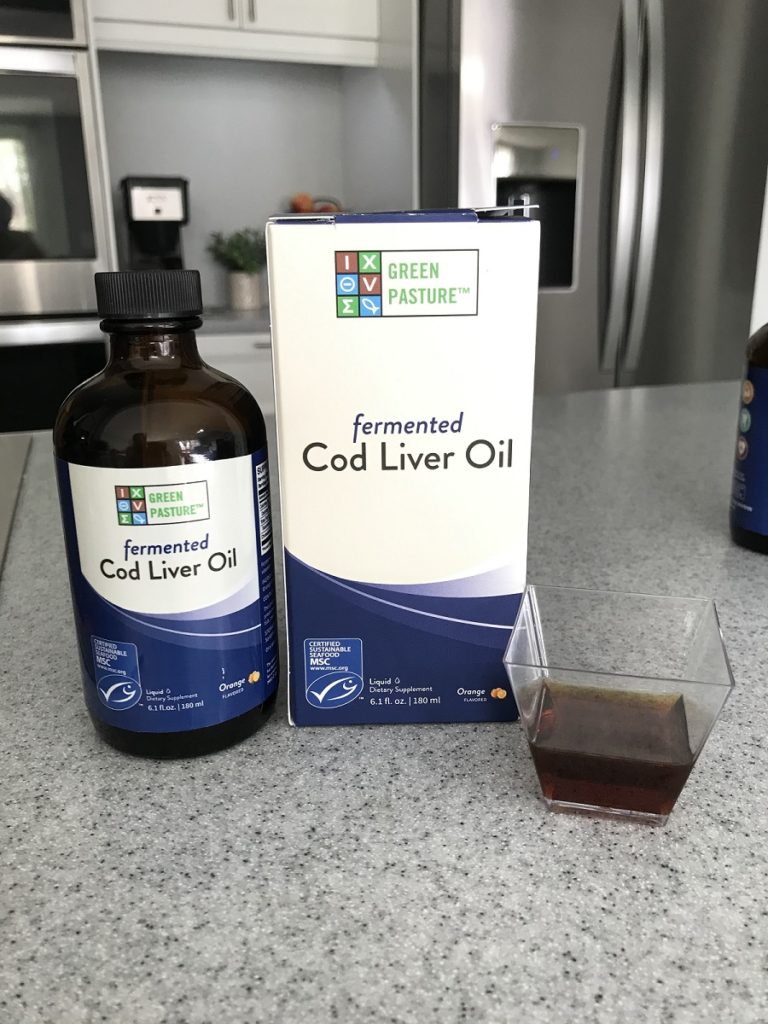
Fermented foods can also assist the body in maintaining regular blood pressure and a steady heart rate. The lactic acid in the ferments helps support a healthy level of acidification in your digestive tract, aiding digestion and preventing the growth of pathogens. (Pathogens cannot survive in an acidic environment.) With all of these benefits, it is an incredibly good idea to eat your sauerkraut and other fermented foods every day.
Since the process of fermentation makes everything better, imagine what it does to a superfood! Cod liver oil is one of the best, and oldest, immune tonics. Good-quality cod liver oil supplies a high amount of fat-soluble vitamin A, considered the “anti-infective vitamin,” along with its partner, vitamin D, plus essential fatty acids that are critical for brain function. When cod liver oil is prepared by fermentation (like the Fermented Cod Liver Oil made by Green Pasture), its nutrients are made even more available and easier to absorb. Fermented cod liver oil, along with other fermented foods and tonics, will stand you and your microbes in good health.
I raise my glass of beet kvass (fermented beet tonic) to you and wish you bon appetit, and be well!
To learn how to ferment just about anything, see the techniques and recipes in the chapter on lacto-fermentation in my book The Complete Cooking Techniques for the GAPS Diet, published by Selene River Press.
Image from iStock/Rimma_Bondarenko (main). Cod liver oil image from Green Pasture.
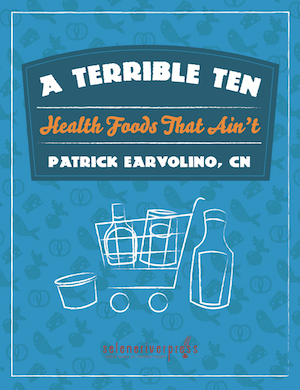 Get self-health education, nutrition resources, and a FREE copy of A Terrible Ten: Health Foods That Ain't ebook.
Get self-health education, nutrition resources, and a FREE copy of A Terrible Ten: Health Foods That Ain't ebook.
